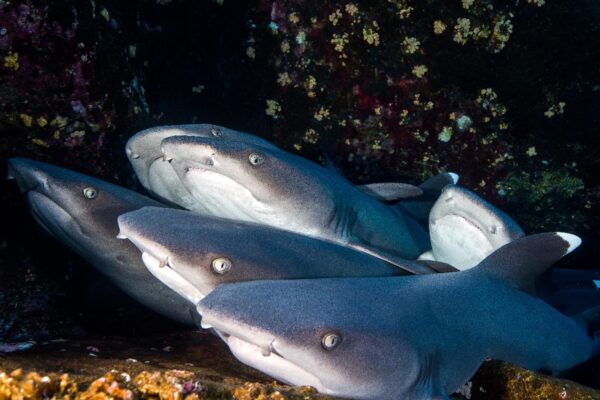With more than 500 species of sharks in the world’s oceans, ranging from the 7-inch dwarf lantern shark to 35 feet long whale shark, sharks are found from polar waters to the equator and at the water’s surface to miles deep. Although there is considerable variation in feeding modes and body sizes, sharks are often presumed to be critical to ecosystem structure, function, and resilience through top-down forcing of ecological communities. Although often valid, researchers of a new study say “this presumption oversimplifies the many roles played by sharks. It also minimizes examples of functional redundancy and small ecological effects”.
In a new Review, titled ‘Ecological roles and importance of sharks in the Anthropocene Ocean’ researchers evaluated historical and ongoing global depletions – and occasional recoveries – of sharks to elucidate their diverse ecological roles, and highlight the value of understanding their past, present, and future roles. The research investigated where sharks play important roles, identified where population restorations may be particularly beneficial, and evaluated policies that can support role recovery. Since 1970, global populations of sharks and rays have decreased by more than 70%.
Credit: Brook Peterson
Impacts of the sharks and impacts on sharks
Previous empirical studies have shown that large species of sharks like tiger and white sharks significantly impact coastal seagrass and kelp ecosystems, influencing habitat quality and carbon sequestration. These indirect effects can enhance ecosystem resilience against extreme climate events. However, overfishing has obscured the historical roles of many sharks, especially in pelagic and deep-water habitats. Additional findings highlight previously unappreciated shark roles, such as nutrient transport. Climate change and ocean industrialization are altering shark behaviors, expanding their ranges, and shifting their ecological impacts. For instance, warming oceans are pushing sharks to higher latitudes, affecting species interactions and ecosystem recovery. Additionally, killer whale predation is changing shark distributions, disrupting their feeding patterns and ecological roles.
Outlook
Researchers state that understanding sharks’ ecological roles, especially small-bodied and deepwater species, is crucial. Management should focus on maintaining ecological function, not just population levels, particularly for influential and threatened macropredators. Despite challenges, managing shark biodiversity is essential for healthy ecosystems in a changing ocean.
To read the full article from The Conversation click here
To read the paper published in Science click here
